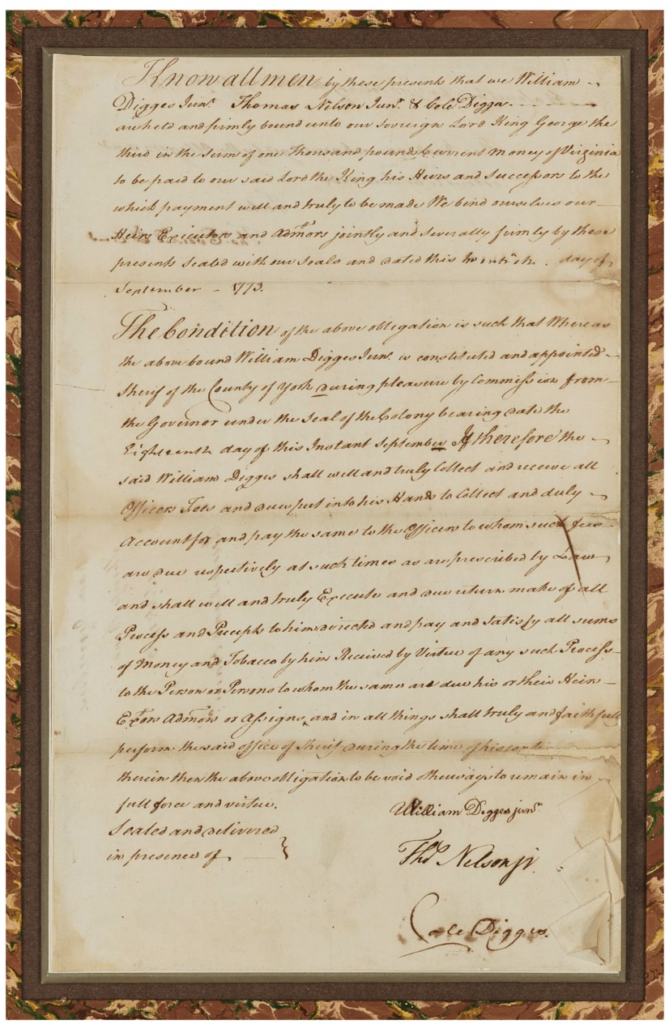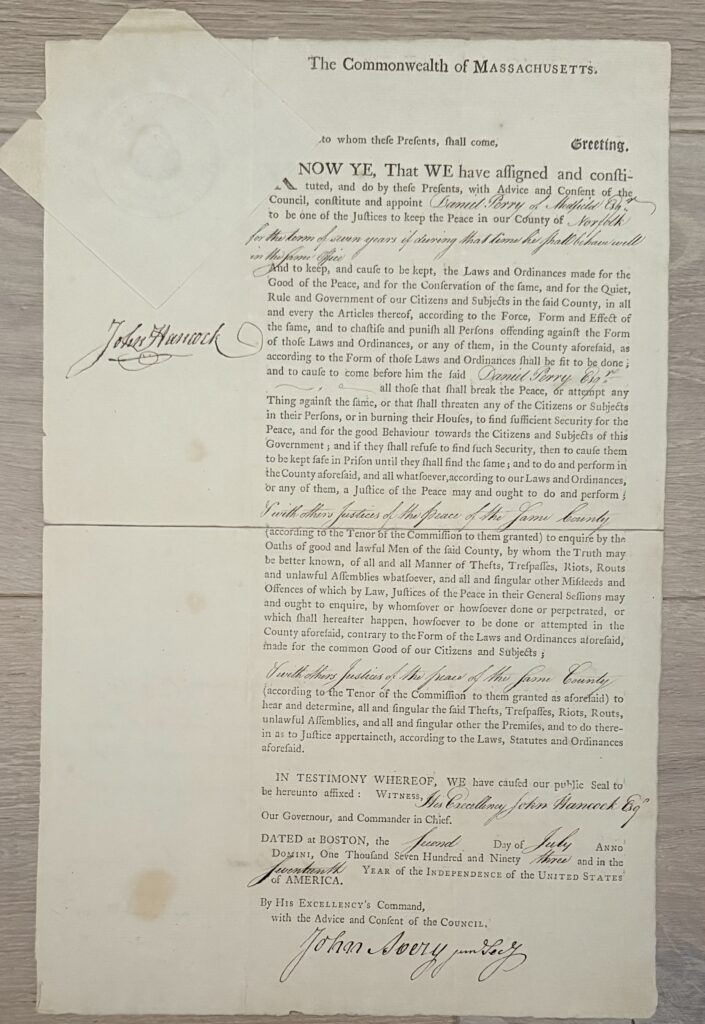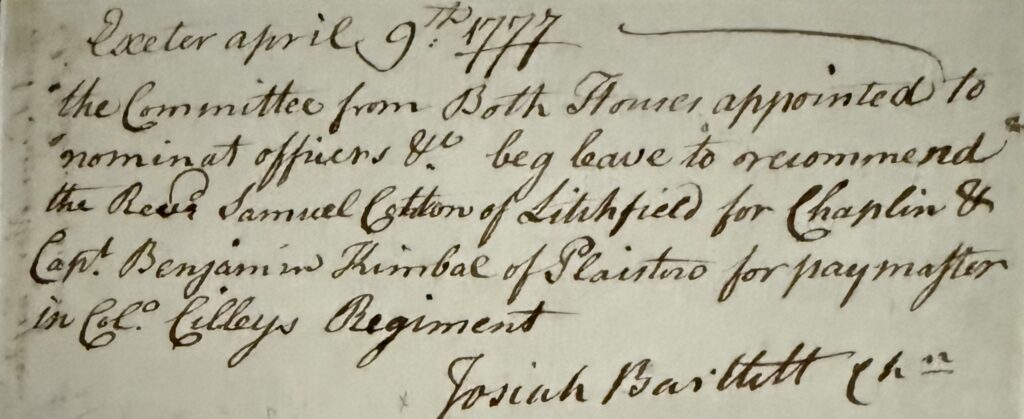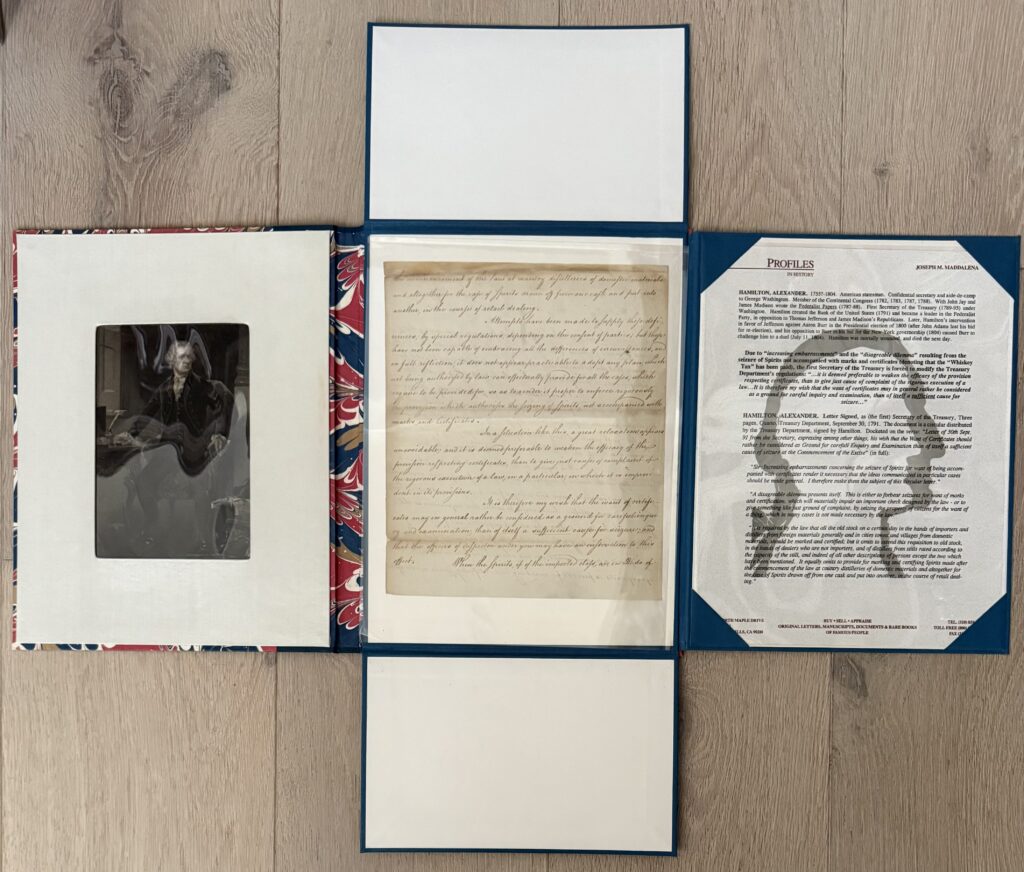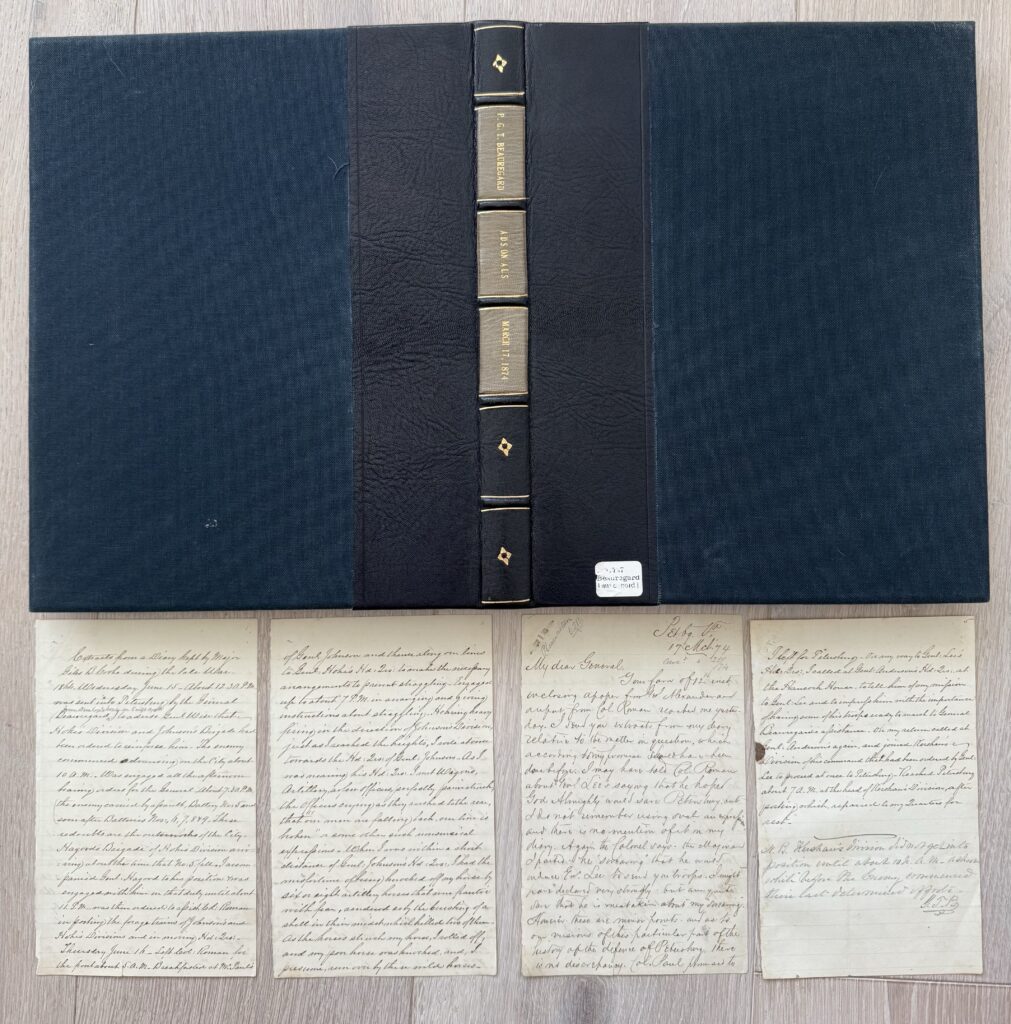RARE DOCUMENT SIGNED BY THOMAS NELSON JR., FOUNDING FATHER AND SIGNER OF THE DECLARATION OF INDEPENDENCE
NELSON, Thomas, Jr. (1738-1789). Document signed (“Thos Nelson Jr”), York County, Virginia, 20 September 1773. Also signed by Virginia politician and military officer Cole DIGGES.
An elegant document appointing William Digges as Sheriff of the County of York. William Digges (1742-1804) and Cole Digges, the signatory of this appointment, were cousins; their grandfather, also named Cole Digges, helped establish Yorktown, Virginia, and spent two decades on the Virginia Governor’s Council after representing the now-defunct Warwick County in the House of Burgesses. Both William and the younger Cole would later represent the same county in the Virginia House of Delegates, and William Digges would later represent the county during the Virginia Ratification Convention of 1788. Provenance: Anderson Galleries, 9-10 January 1935, lot 527 – Arthur J. Stegall Jr. Collection.
Thomas Nelson Jr. was elected to Virginia’s House of Burgesses and was a very outspoken opponent of Britain and their policies toward the colonies and was one of the first leaders in the colonies to entertain the idea of an independency for the colonies. He believed that it was absurd to have the colonists hold an “affection for a people who are carrying on the most savage war against us.” On November 7, 1774, Nelson was a member of the Yorktown Tea Party. Citizens of York County, Virginia had passed a non-importation boycott in response to the Tea Act of 1773. When the British ship Virginia docked at Yorktown, enraged citizens marched onto the ship and dumped two imported half-chests of tea into the water.
Nelson was appointed as a member of the Second Continental Congress in mid-1775, replacing George Washington when Washington left the Congress to go to Boston to take command of the Continental Army. He had returned to Virginia and was in Williamsburg on May 15, 1776 when the Fifth Virginia Convention passed a series of resolutions declaring Virginia was no longer a part of the British Empire. Nelson immediately carried the news from Virginia to Philadelphia where Richard Henry Lee, on June 6, 1776, made the official resolution for independence within the Second Continental Congress, that would lead to the Declaration of Independence.
Nelson was later appointed a brigadier general in the Continental Army and commanded the Virginia militia during the battle of Yorktown in 1781 during the American Revolutionary War. It was here that one of the most selfless acts of his life took place as he ordered the artillery of the Continental Army to fire on his home, where several British officers were headquartered. The home was heavily damaged. The surrender of the British troops at Yorktown occurred soon after.
In June of 1781, Nelson became the third governor of Virginia, succeeding Thomas Jefferson. He had to resign in November of 1781 due to poor health. By this point in his life, he had lost almost everything. His businesses were destroyed. He was owed over two million dollars by the United States government for his loans to help finance the French fleet and their aid to the war effort. He was never repaid and his financial well-being was destroyed.
